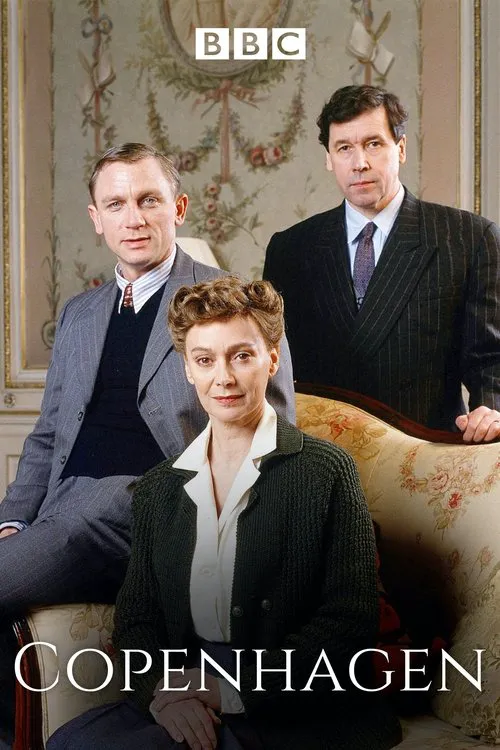Copenhagen

Plot
The play and film 'Copenhagen' revolves around the highly publicized meeting between Austrian-born physicist Werner Heisenberg and his childhood friend and fellow physicist Niels Bohr, a Danish Jew, in Copenhagen, Denmark in September 1941. On one hand, the encounter represents a fascinating confluence of scientific intellect and the tumultuous era of World War II. On the other hand, it has also sparked an enduring debate as to the true nature of their encounter, particularly regarding Heisenberg's involvement with the Nazi regime and its potential implications for the development of nuclear physics. As the story begins, Werner Heisenberg returns to Copenhagen to visit his long-time friend Niels Bohr. Though the two physicists have remained close despite their differing careers, Heisenberg's visit coincides with a critical juncture in German and Danish history, as Germany begins its occupation of Denmark in April 1940. As the conversation between Heisenberg and Bohr unfolds, the audience is placed in the shoes of the two physicists as they grapple with the intricacies of quantum mechanics and its potential military applications. Heisenberg comes to Bohr to persuade him that the German military is on the cusp of successfully harnessing nuclear energy, and that Bohr should, as an influential figure in the international physics community, dissuade British and American physicists from pursuing their own nuclear energy projects. At the same time, however, Bohr, a proud Dane, knows the truth – Germany has not developed a functional nuclear energy source yet. Moreover, Bohr's wife Margrethe, a strong voice in her own right, becomes increasingly wary of Heisenberg's motives, as well as the potential risk posed by his claims to their family and Copenhagen community. The evening takes a series of twists and turns as Heisenberg presses Bohr for his support in stifling the development of nuclear energy among the Allied forces. But Bohr remains unconvinced by Heisenberg's words and his resolve becomes increasingly clear. Meanwhile, the couple becomes acutely aware of the danger posed by their association with a representative of the Nazi regime, as Copenhagen is effectively occupied and Denmark teetering on the brink of chaos. At this point, an alternate interpretation emerges of the events, one in which Heisenberg, a key figure in the development of nuclear physics, is not only a devoted scientist but also a fervent supporter of the Nazi regime. According to this viewpoint, Heisenberg, by discussing the potential application of nuclear energy with Bohr, intended to mislead his fellow physicist into delaying Allied efforts in nuclear research. However, another account disputes Heisenberg's alleged intentions and posits that he came to Bohr genuinely seeking a discussion of the scientific aspects of nuclear energy. Regardless of Heisenberg's true intentions, 'Copenhagen' delves into the complex web of politics, friendship, and intellectual curiosity that characterized the lives of Heisenberg and Bohr during World War II. The play masterfully navigates the nuances of this complex encounter, inviting the audience to ponder its implications and grapple with its multiple interpretations. In a broader sense, 'Copenhagen' is not simply a film about the scientific encounter between Heisenberg and Bohr, but also an exploration of the moral dilemmas scientists faced during World War II, as nations struggled to harness the power of scientific discoveries for their own purposes.
Reviews
Recommendations



